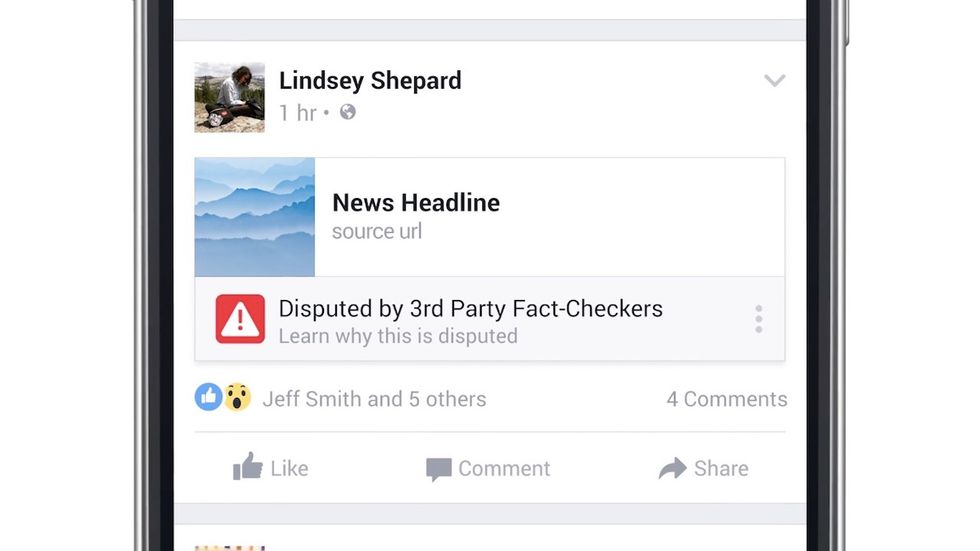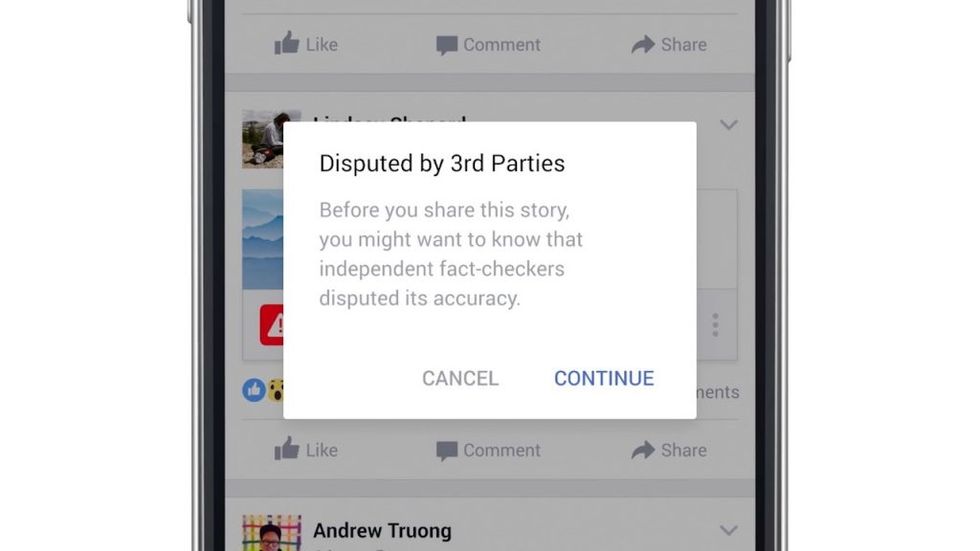
Image source: Facebook/Vimeo

Facebook, in partnership with several mainstream media fact-checking outlets, will begin fact-checking articles, labeling them as bogus or legitimate. Stories found to be "fake" will be buried at the bottom of the news feed, site founder Mark Zuckerberg announced Thursday.
After being criticized for the role it played in spreading fake news during the presidential campaign, Facebook has determined to combat the prevalence of such information on its platform.
However, the decision received a negative reaction from some concerned the move will disproportionately impact conservative news sites, given Facebook has chosen to partner with outlets like Snopes, FactCheck.org, ABC News and PolitiFact, which are part of an international fact-checking network helmed by Poynter, a nonprofit journalism school located in St. Petersburg, Florida.
Republican strategist Evan Siegfried said the new strategy from Facebook includes partnerships with fact-checking sites that "all seem to be from the left."
Anonymous conservative blogger RBPundit wrote that Facebook is "compounding the problem" with the decision, which he asserted was "a fraud."
The sharpest rebuke, though, came from conservative writer Ben Shapiro, who said the decision is a "disaster for news coverage," adding, "It's an attempt to restore gatekeepers who have a bias as the ultimate arbiters of truth."
Facebook, starting with a beta test in the U.S., plans to make it easier for users to identify and quash bogus news stories. Once fact-checkers have confirmed the falsity of a story, it will be labeled as such and shifted to the bottom of the site's news feed.
"We've focused our efforts on the worst of the worst, on the clear hoaxes spread by spammers for their own gain, and on engaging both our community and third party organizations," Adam Mosseri, Facebook's News Feed chief, said in a company blog post Thursday.
In addition to fact-checking methods, a spokesperson told Business Insider, Facebook will also employ new algorithms that determine whether a story beginning to go viral is fake or real, which will decide if the story maintains its position or is demoted.
Those sites that Facebook determines to be spoofed domains or spreading fake news will be barred from selling ads on the social networking site. Regardless, Facebook has long argued it is not a media company and its employees are not editors.
"We do not think of ourselves as editors," Patrick Walker, head of media partnerships at Facebook, said during a journalism conference in Dublin, Ireland. "We believe it’s essential that Facebook stay out of the business of deciding what issues the world should read about. That’s what editors do."

Ever since President-elect Donald Trump succeeded over Democratic presidential candidate Hillary Clinton last month, progressives — and anti-Trump conservatives — have blamed fake news, in part, for the Nov. 8 outcome.
Zuckerberg said last month it's "pretty crazy" to suggest fake news swayed the results of the election. But now he seems to be changing his tune:
Facebook is a new kind of platform different from anything before it. I think of Facebook as a technology company, but I recognize we have a greater responsibility than just building technology that information flows through.While we don't write the news stories you read and share, we also recognize we're more than just a distributor of news. We're a new kind of platform for public discourse — and that means we have a new kind of responsibility to enable people to have the most meaningful conversations, and to build a space where people can be informed.